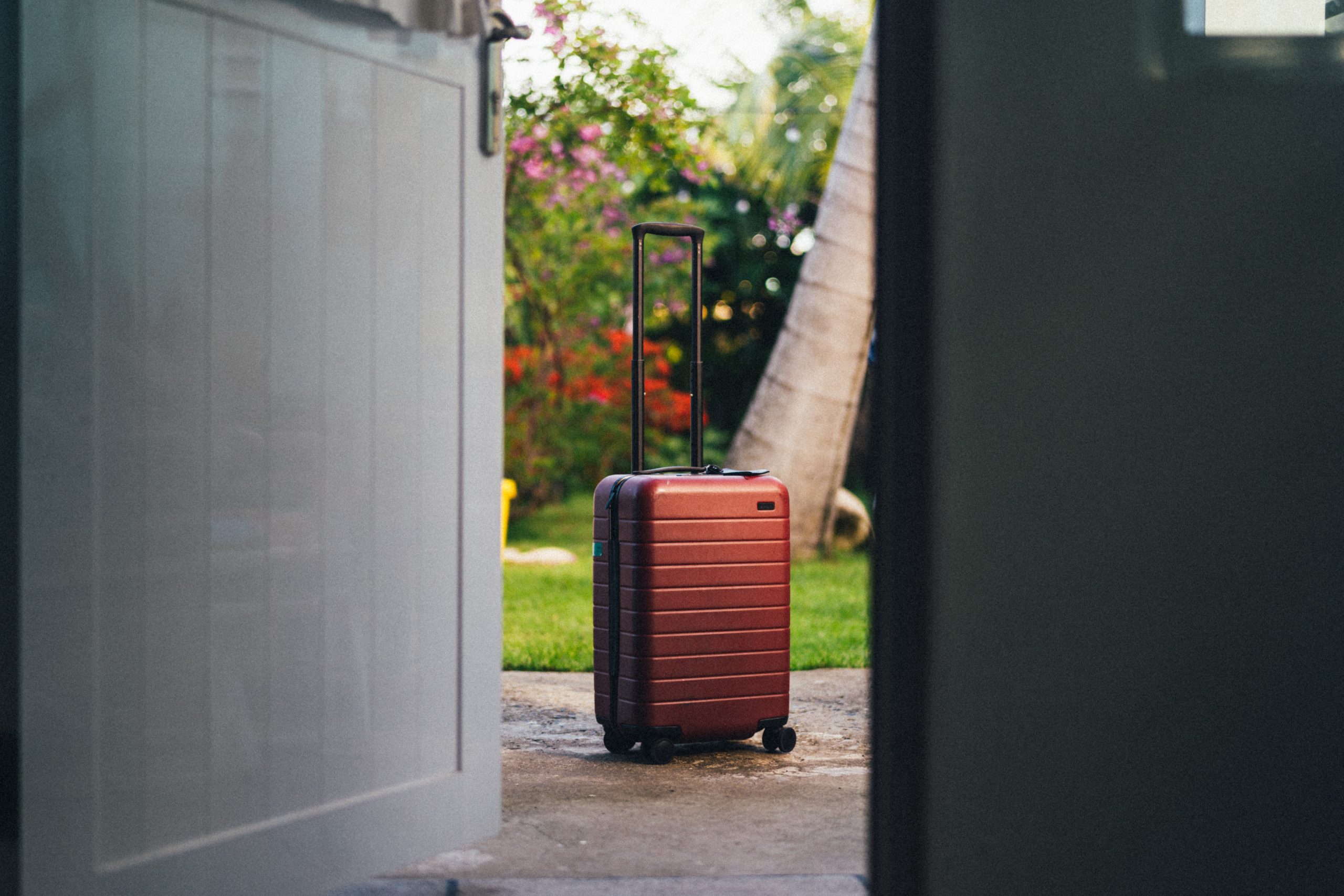You may think Airbnb rental visitors lying about the number of guests is no big deal. After all, the property is being rented out anyway, and if guests want to share a bed or have some friends over, then that’s their business, right?
Well, no, not if you’re a responsible host with a professional short-term rental (STR) business. Because it’s not just a case of guests needing extra towels or not having enough beds.
There are serious risks involved with having unauthorized extra guests at your Airbnb. So, how do you handle it when guests lie and how can you stop it from happening in the first place?
This article will show you how to:
- Prevent potentially untrustworthy guests or scammers from booking at all
- Minimize risk before, during, and after booking
- Automate checks and monitoring to stop over-occupancy
- Handle it professionally if you find that guests have broken your rules
Want to stop unauthorized guests from staying in your Airbnb property?
Autohost offers advanced guest vetting to minimize the risk of rule-breaking guests.
Request a demo now.
How is sneaking in or lying about extra Airbnb guests bad for the host?
Responsible hosts know that unexpected additional guests can seriously impact your Airbnb business—from upsetting the neighbors or damaging your property, to inviting serious criminal activity.

Here’s why you shouldn’t tolerate the lies:
- You could lose money. Many hosts charge additional fees for extra guests. It may seem innocent for a family of five to say they’re a family of three, or a group of friends to say they’re four instead of eight, this costs you hundreds of dollars per person, which over time will add up to serious financial loss.
- Your property could get damaged. The more people, the more your furniture and items are being used and the more likely they are to become worn or even break. Unexpected guests could leave you with costly repairs, meaning more downtime for your property.
- Your guests might throw unauthorized parties. Even relatively sedate large gatherings can cause damage and antisocial behavior. Not only do you risk upsetting the neighbors, but you could end up breaking local regulations on noise and STRs.
- You might break the law by not checking their IDs. Some countries including Spain and Italy require hosts to collect IDs for all guests and pass the details on to authorities, including police, within 24 hours. Not doing this is illegal and if you’re found to have guests that aren’t recorded, you’re at risk of serious sanctions.
- You’ll invite more disrespectful guests. Whether the guest is lying about a couple of people, a full-blown party, or worse, lies indicate a lack of respect towards the host, opening your property to further risk of damage, breaking house rules, and crime.
- You may end up with bad reviews. Not having a clear idea of how many people will be at your property means you won’t be able to prepare it adequately, running the risk of guests having a bad experience and opening you up to unfair, negative reviews.
If you’re worried about uninvited guests harming your Airbnb business, try installing smart devices, from a company like NoiseAware, that can automatically detect high levels of noise and carbon dioxide produced by large gatherings.
AI-Powered Protection for Your Properties
With Autohost, safeguard your rentals against damages, fines, and revenue loss. Our AI does the heavy lifting so you don’t have to.
Airbnb Visitors Policy:
The Airbnb Visitors Policy is designed with respect for the property, its neighbors, and the host’s prerogatives in mind. Contrary to what some might believe, allowing extra, unregistered guests is not a matter of simple courtesy or a harmless bending of the rules.

In general, Airbnb’s policy does not typically allow unregistered visitors, although some hosts may choose to be more lenient if informed and agreed upon at the time of booking. These specifics, however, are contingent on the individual host’s rules and expectations. It’s critical for guests to understand and respect these rules, and if they have any questions or are unsure, they should contact their host for clarification.
If a guest is considering having visitors during their stay, they should discuss this with the host before finalizing the booking. There may be extra fees involved, or the host might require additional information or even a background check for the visitors.
How can hosts minimize the risk of lies about the number of guests on Airbnb?
Minimizing the risk of lies between guests and hosts starts right from the beginning of your interaction, through the booking, and communication before, during, and after each stay.
As they say, prevention is better than the cure! Handling lying guests is less about dealing with it if or when it happens, and more about stopping untrustworthy guests from booking in the first place.
Here’s how.
Before the booking
- Make your house rules and guest limits very clear on your listing. For most guests, this will be enough to dissuade lying. In addition, making it clear that extra guests and parties aren’t allowed will put off “grey area guests” from booking at all. These aren’t necessarily “bad” or criminal guests, but ones that aren’t keen on extra rules and may cause problems unless spotted early.
- Use clear language. It’s OK to use strict language to emphasize your rules, such as describing extra people as “trespassing” rather than mere “visitors”. This makes it clear that disruptive behavior will have consequences.

- Establish professional and friendly communication. Don’t assume guests will lie—give them a chance to be honest! Be friendly and professional by asking Airbnb questions for guests, such as them why they’re traveling, how many people there will be, and any other key details. This establishes trust and means they’re more likely to respect your property. Potentially problematic guests won’t like being questioned. They’ll see it as a “hassle” and go elsewhere.
- Check out guests’ profiles and existing reviews. Online travel agencies (OTAs) like Airbnb enable hosts to look at guests’ profiles to see previous reviews. Take note of any issues such as parties or poor communication to filter out problematic guests.
- Require guests to accept your house rules on guest limits and parties. State your House Rules on your listing, and require guests to accept them at the time of booking. This will deter lying and put off untrustworthy guests.
- Screen your guests thoroughly. Screening guests via Vrbo background checks, Vrbo ID Verification, or Airbnb ID verification is the first step in verifying that guests are who they say they are. A dedicated guest screening platform like Autohost will check criminal records, sex offender registers, and perform credit checks for even more thorough and reliable verification.
- Collect your guests’ data so you have a list of visitors. Similar to hotel background checks, compiling a list of identifying details for each guest means you can be certain of who is staying in your vacation rental, and encourage guests to declare everyone on their booking. This also increases the chance that potential criminals or rule-breakers will cancel and go elsewhere, to avoid a paper trail.
- Establish a policy for consequences if rules are broken. You can state the consequences of breaking your House Rules to make sure guests know you’re serious right off the bat. It also gives you a framework to follow in case the rules are broken, such as a cleaning fine for guests (or even pets) that weren’t mentioned at the time of booking.
- Get Airbnb-suitable insurance. Just in case the worse does happen despite all your best efforts, it’s advised to cover your property with an insurance policy designed for STRs. This will help cover the costs of damage.
Airbnb extra guest fee:
The extra guest fee is stipulated by the host and is typically charged per person, over and above the number of guests included in the original booking cost. The specifics can be found under the ‘Pricing and Availability’ section of each individual listing. The host has the discretion to set this fee based on the capacity of the property, the resources provided, and the potential impact on the property’s upkeep. If guests plan on having additional visitors during their stay, additional fees could be levied, or certain rules may apply to accommodate the extra guests. This approach not only fosters a transparent and respectful relationship between host and guest, but also helps avoid misunderstandings or disputes down the line. The extra guest fee is a measure to account for the additional resources required, the wear and tear on the property, and the added liability when more people are accommodated.
During the booking
- Require the guest to check-in online via their verified Airbnb profile. If you’re using security software like Autohost, you can link to major OTAs like Airbnb and Vrbo to make sure that only verified guests can check-in. This establishes a record of their identity and their Airbnb stay.
- Reiterate the house rules and policy on arrival. Make your rules clear at all times, so guests can’t claim they didn’t see them. Reinforcing your boundaries will act as a reminder to guests who are tempted to break the rules, and most will be put off lying knowing you’re a responsible host who won’t tolerate disrespectful behavior.
- Maintain good communication and check-in with the guest every so often. Honest and friendly guests won’t mind you checking in with them throughout their stay to make sure everything is OK and encourage open communication, while guests who may have been tempted to ignore the rules during their stay will be more likely to stick to them.
- Install occupancy monitors to keep track of numbers. Occupancy monitoring devices will alert you to large gatherings without the need to install costly and invasive security cameras (and have someone around to watch the footage). Since most occupancy monitoring devices are triggered by high decibel or carbon dioxide levels, your guests’ privacy is protected at the same time as your property.
- Set up friendly alerts in case noise or occupancy levels are breached. Occupancy monitors can also be integrated with your PMS, or a security system like Autohost, to send automated messages to the guest if levels are breached, reminding guests of the rules and encouraging honesty and compliance.

After the booking
- Thank the guest for sticking to your house rules. Give good guests a five-star rating, and thank them publicly in your review. Be sure to mention that they respected your property and stuck to the rules. This will show future guests that you take note of great behavior.
- Be professional with suspected rulebreakers. If you suspect that your guest did not respect the house rules and lied about guest occupancy, you can contact them privately with your concerns. It may be nothing but, if you find out the worst, you need to request payment for damages and leave an honest, fair review to warn other Airbnb hosts about their behavior.
Pro tip: even with rulebreaking guests, stay professional and fair in your reviews. This will make a far better impression on future guests than if you become impolite or aggressive.
How to handle lies about the number of guests: Prepare, communicate, and monitor
Ultimately, handling guest lies starts before the guest even books or arrives.
Preparing for guests by laying out your house rules, deciding a policy in case of rule-breaking, using clear language, and establishing friendly and open communication are some of the best ways to encourage guests to be as honest as possible.
Continuing the communication throughout the stay, and monitoring the property via occupancy and noise monitors can also help remind renters to adhere to the rules, and help detect any possible issues in real-time.
A security platform such as Autohost can help you set up your property for safety and security right from the start. It’ll help you list your rules, carry out online check-in and digital verification, and integrate with monitoring platforms such as NoiseAware to stay vigilant to unwanted behavior throughout.
By enabling robust background screening, discreet noise monitoring, and integrating directly with Airbnb, Autohost helps property managers to easily scale up their checks on guests automatically.
Automated security workflows mean hosts can improve guest trust and stay experience, de-escalate any potential confrontation, handle guest lies with ease, and minimize the risk of lies and damage in the first place.
Want to stop unauthorized guests from staying in your Airbnb property?
Autohost offers advanced guest vetting to minimize the risk of rule-breaking guests.
Request a demo now.
Frequently asked questions about the number of guests on Airbnb
Does Airbnb charge per person?
Yes, Airbnb often charges per person. It’s up to each individual host to decide their pricing structure, and many choose to incorporate a base rate for a certain number of guests, with an additional per-person fee for any extra guests. This information is clearly laid out in the ‘Pricing and Availability’ section of each Airbnb listing. Always remember to accurately report the number of guests in your booking to avoid any potential issues or extra charges.
What about lying about the number of guests in a hotel room?
Lying about the number of guests in a hotel room is not advised. It’s not only dishonest but also could lead to consequences such as additional charges, or even eviction from the property. Like Airbnb hosts, hotels have policies and pricing structures based on the number of occupants. Overcrowding can lead to violations of fire safety regulations and can put undue strain on hotel resources. It is always best to provide accurate information and respect the policies of the accommodation provider to ensure a positive experience for everyone involved.
Is Airbnb strict about the number of guests?
Airbnb’s policy on guests leaves it up to the host to specify and encourages hosts to be clear about their limits. Hosts can state the number of people, cost per person, and the number of beds in the property. However, there is a limit of 16 people, to discourage large parties.
What happens if guests lie about the number of guests on Airbnb?
If guests lie about the number of guests on Airbnb, it is up to the host to decide the course of action, including requiring extra cleaning fees or a damage payment. Hosts can require guests to pay an Extra Guest Fee via the Pricing and Availability section on their Listings page.
Can Airbnb guests bring extra people?
Airbnb guests cannot bring extra people if they have not paid the required extra guest fees, or have agreed to the house rules, if they state that no extra guests are allowed. Hosts can also state limits on guest numbers on their listing and in their house rules, request that guests make a trip change if they wish to bring extra guests at the last minute, and charge extra guest fees.
Why does Airbnb only allow 16 guests?
Airbnb only allows 16 guests because, in August 2020, it imposed “a global ban on all parties and events at Airbnb listings, including a cap on occupancy at 16”. It also states that “unauthorized parties have always been prohibited at Airbnb listings” and that “73% of our listings globally already ban parties in their House Rules”. In 2019, Airbnb imposed a global ban on “party houses” (listings that create persistent nuisance), and now requires guests under 25 to have a record of five-star reviews.
Revolutionize Your Rental with Smart Screening
Autohost’s AI-driven tool screens guests thoroughly, managing security deposits and contracts digitally for a hassle-free experience.





